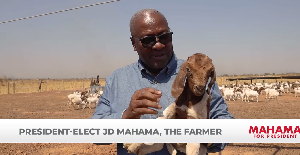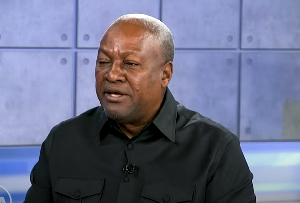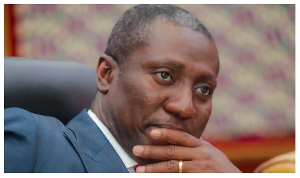Accra, Jan. 6, GNA - Ghana's current credit rating, debt sustainability and attainment of Highly Indebted Poor Countries (HIPC) completion point has earned her the biggest grant ever of 103 million dollars from the World Bank.
The amount together with a 12 million dollars and five million dollars from the Government of Ghana and the Nordic Development Fund, respectively, is to be used to start the implementation of the long awaited private sector participation in the delivery of potable water in the country.
Speaking to the Ghana News Agency on Thursday after signing the grant with the Government, Mr Mats Karlsson, World Bank Country Director said, initially signed as a loan, the amount had to be converted into a grant after a careful reflection on Ghana's achievements in recent times.
Besides, he said, "The country's urgent need for potable water was also considered, but it's important to state that it's not an easy thing to get such a huge grant from the Bank. It is very competitive and a lot of issues come into play".
Mr Karlsson told the Government and the Ghana Water Company that after a long debate, misgivings and concerns, the country was eventually moving forward to implement the private sector participation in the provision of water.
He said there was no doubt that the model was the best for the country and that everything must be done to ensure that the process took off smoothly.
Mr Karlsson said the dynamics to move this country, which is evident in the progressive and success story of Ghana's democracy had been laid, adding: "This is not the time to get into political debates but a time to move forward."
Mr Yaw Osafo-Maafo, Finance and Economic Planning Minister, who signed the grant on behalf of Ghana, said the grant would in no doubt reduce the debt burden of the country.
He said the project objective was to significantly increase access to pipe- borne water system in the urban centres with emphasis on improving access, ensuring affordability and service reliability to the urban poor.
Mr Osafo-Maafo mentioned the key project components as, system expansion and rehabilitation, public/private partnership development, capacity building and severance programme.
"It has been 10 years of consultations during which all stakeholders in the water and related sectors have brainstormed to find and fashion out the best options to these problems.
"Water is life and for this reason, care - indeed extreme care has been exercised to ensure that all ideas and ideologies were taken on board in deciding the way forward, especially the acceptance of private participation in the water delivery," he said.
He said though some may still want the debate to go on, the Government could not afford "the luxury of waiting for more debates on the issue. Staring at us in the face are statistics which are worrying..."
Mr Osafo-Maafo said only 51 per cent of the estimated 20 million Ghanaians had access to potable water and most of the deprived were the urban poor.
"It 's also our commitment to achieve the Millennium Development Goals, by at least cutting in half by 2015, the proportion of people without access to safe drinking water and sanitation in this country," he said.
He said in 2003 the Government granted a total debt relief of about 907.73 billion cedis to the Ghana Water Company Limited (GWCL) as part of its efforts to improve the financial viability of the Company in order for it to provide better services to the populace.
Alhaji Mustapha Ali Idris, Minister of Works and Housing, announced that the selection process of contractors for the project would soon begin and noted that Ghanaian companies were not exempted.
He said there was and had been no intention to discriminate against Ghanaian companies regarding the bidding process for the procurement of a management contractor.
He charged the GWCL to ensure the judicious use of the funds.
Click to view details



Business News of Thursday, 6 January 2005
Source: GNA
















